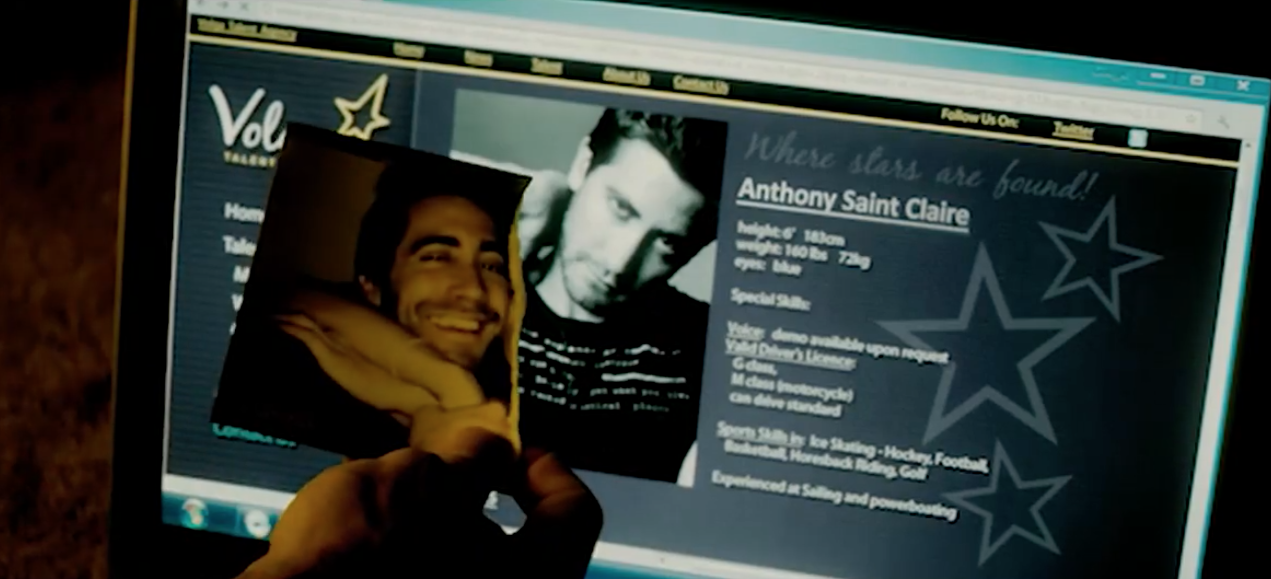The shortest and sweetest reviews tend to be those written about films with little under the surface, but provide harmless entertainment leaving you smiling from ear-to-ear. Although my review of Denis Villeneuve’s 2013 release Enemy will be a relatively short one, there is certainly no lack of depth or higher meaning. Thus, in the name of maintaining this depth for readers who have not yet seen the film, I feel obligated to avoid any hints or spoilers at the machinations of this complex and intriguing entry into the psychological thriller genre, though it is not without its frustrations.
It is near impossible for me to discuss Enemy without first acknowledging the clear influence of David Lynch. I am a huge fan of Lynch, so I admittedly revelled in the barrage of seedy, surrealist imagery and audacious sound editing in an early opening scene. It is clear from there onwards that Villeneuve has rarely been so on point with his visuals, which in a loud-but-subtle manner drives themes that become more apparent as the story progresses. If you want to pay homage to Lynch and his influence on surrealist cinema, this is how it is done.
It is also the perfect way to introduce the first of Jake Gyllenhaal’s two roles. While it is initially suggested that the character in the opening scene is Adam Bell, a history lecturer living a mundane and repetitive life in the city of Toronto, things start to become complicated after Adam watches a film that features an actor by the name of Anthony Claire, who is identical to Adam. As Adam begins to investigate his doppelganger, things only become stranger and more unnerving as answers elude Adam, and the audience, giving rise instead to more questions.
This is the best description I can offer about Enemy without spoiling the experience as a whole. I greatly enjoyed the patient and methodical approach taken by Villeneuve and screenwriter Javier Gullón, as the thoughtful buildup of lingering mysteries had me completely enraptured in its second act. It is just as well too, because the first act can occasionally feel cold and distant, with little meaningful development of Adam as a character. I find it frustrating when I have so little understanding of a main character before the overbearing mystery sets in for most psychological thrillers, but thankfully the mystery demands your absolute attention, and does a great job of curbing my early frustrations. Furthermore, to the credit of the writing and direction, my patience was rewarded as the mystery itself is what develops its two main characters.
And Gyllenhaal does such a wonderful job of expressing the differences in personality between Adam and Anthony, making me wholeheartedly believe that these were two separate individuals. It is all the more impressive when considering that Tyler Perry struggles with this problem in his many multi-role films, even under all that makeup and prosthetics.
Also like any David Lynch film, however, Enemy’s meaning does not readily reveal itself, nor should it. Not long after Enemy’s opening, it becomes abundantly clear that the overall merit of the film hinges on the strength of the payoff, and upon attaining a better grasp of what is actually going on in the film, I can say that it is very much worth it. The surrealist imagery carries clear metaphorical and emotional weight, so it is only a matter of unveiling its subjective meanings through the evidence provided, and that either means more than one viewing, or a quest for answers on the web. I am certain that the ending will shock some and frustrate others, even though its meaning is far more grounded and relatable than people might realise, and I think that it is an ending the father of modern surrealist cinema would be proud of. If, like me, you are a fan of both Lynch and a Villenueve, then you owe it to yourself to see this film, regardless of its frustrations.
Speaking of doubles, read Shaun Lang’s perspective on the film here.

